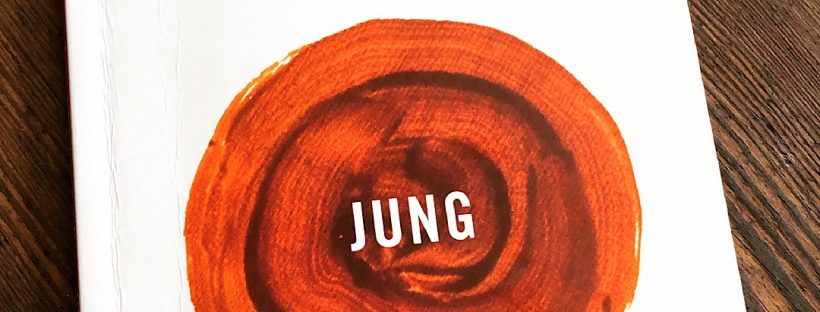From the foreword by Sonu Shamdasani: this work “.. represented Jung’s attempt to fashion psychology as a means of averting and surviving apocalypse”.
1. “.. an individual – a relative exception and an irregular phenomenon”
Historically, it is chiefly in times of physical, political, economic and spiritual distress that men’s eyes turn with anxious hope to the future, and when anticipations, utopias and apocalyptic visions multiply. .. Today, as the end of the second millennium draws near, we are again living in an age filled with apocalyptic images of universal destruction”.
Jung, The Undiscovered Self, p. 1.
Quite an opening. And we are somehow again in the same place in 2021, with the COVID-19 pandemic, with climate change and other issues…
p.3/ Mentioning “collective possession”, “collective irrationality” and “psychic infections” – discussing how the masses behave themselves in times of distress and how various ideas find fruitful soil as “the so-called normal person possess only a limited degree of self-knowledge”.
Jung stresses the importance of self-knowledge so that in times of distress not to get ‘infected’ by the ‘collective irrationality’. As I read it – there is the need to dedicate time for such an activity, dedicate time for self-knowledge. To take the time to reflect, who am I? what am I doing? where am I going? is this right for me? is this important for me? does what I do reflect my life values? what are my life values? how do I spend my time? are those really valuable activities for me? are these the right people for me that I spend my time with? what are my wishes and desired? etc..
p.4-5/ Discussing the scientific theories and statistical approach. Fantastic example with the pebbles. “The mean is quite valid, though it need not necessarily occur in reality… The exceptions at either extreme, though equally factual, do not appear in the final result at all, sine they cancel each other out”. Made me think about our cross-cultural project on validating the ZTPI, where we came to a similar dilemma – we had to ‘throw out’ items of the questionnaire that ‘were biased’ in order to make the instrument work across cultures, but at the same we were ‘throwing out’ all the interesting culture-specific information..
The statistical method shows the facts in the light of the ideal average but does not give us a picture of their empirical reality. … the real picture consists of nothing but exceptions to the rule, and that, in consequence, absolute reality has predominantly the character of irregularity.
Jung, The Undiscovered Self, p.5
There is and can be no self-knowledge based on theoretical assumptions, for the object of self-knowledge is an individual – a relative exception and an irregular phenomenon.
Jung, The Undiscovered Self, p.5
“Hence it is not the universal and the regular that characterize the individual, but rather the unique.”
p.6/ On understanding: “If I want to understand an individual human being, I must lay aside all scientific knowledge of the average man and discard all theories in order to adopt a completely new and unprejudiced attitude. I can only approach the task of understanding with free and open mind..”
p.7/ “Today, over the whole field of medicine, it is recognized that the task of the doctor consists in treating the sick person, not an abstract illness.” – such a humanistic view! And in reality it is so difficult to find such a doctor..
Questioning the scientific methodology and applicability of statistical theories: “… The individual .. as an irrational datum, is the true and authentic carrier of reality, the concrete man as opposed to the unreal ideal or normal man to whom the scientific statements refer.” And author is quite upset that among the sciences only “modern physics recognizes that the observed is not independent of the observer” (p.8).
p.8/ Talks about the further development of the “conceptual average”:
- moral responsibility of the individual – replaced by the policy of the State
- moral and mental differentiation of the individual – replaced by public welfare and raising of the living standard
- goal and meaning of individual life – policy of the State, which is thrust upon the individual from outside
The individual is increasingly deprived of the moral decision as to how he should live his own life, and instead is ruled, fed, clothed and educated as a social unit, accommodated in the appropriate housing unit, and amused in accordance with the standards that give pleasure and satisfaction to the masses.
Jung, The Undiscovered Self, p.8.
p.9/ “.. a mass always produces a “Leader”, who almost infallibly becomes the victim of his own inflated ego-consciousness, as numerous examples in history show.”
.. the individual becomes more and more a function of society, which in its turn usurps the function of the real life carrier, whereas, in actual fact, society is nothing more than an abstract idea like the State
Jung, The Undiscovered Self, p.11
The State .. is turned into a quasi-animate personality from whom everything is expected. In reality it is only a camouflage for those individuals who know how to manipulate it.
jung, the undiscovered self, p.11
Overall, not something that I’d expect to read in a Jungian book, but super fascinating! Looking forward to the rest of it.
